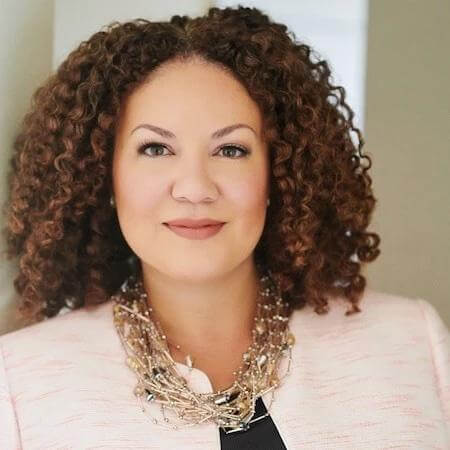Word to the Wise | Dr. Michelle Hawkins
by Jasmine M. Ellis
For Howard University alum, Dr. Michelle Hawkins, serving as a policy leader put her in the White House. She recently finished a tour there as a Fellow at the Leadership Development Program, and as a member of the Council on Environmental Quality. Hawkins is currently the Senior Advisor for Climate and Sustainability at the U.S. Department of Housing and Urban Development.
“While I have always had a passion for science, I really enjoy working at the intersection of science and how science is applied in our everyday lives,” says Hawkins. “One of my first jobs after graduating with my BS was as a Policy Analyst at the National Governors’ Association, where I was responsible for developing summaries of issues and potential solutions to the nation’s most pressing environmental public policy challenges. For example, I would summarize the state of science on topics like climate change then center the discussion on science-related policy decisions that support the use of clean energy technologies that help mitigate climate challenges. Linking technical knowledge with the development of policies that protect and improve our lives was very fulfilling.”
Hawkins talked to The Sway about working at the White House, how Howard helped prepare her for the work she does today, and advised those interested in a similar career path. This article has been condensed and edited for clarity.
The Sway: What brought you to The White House? And what professional opportunities prepared you? What role did your training at Howard play in this preparatory process, such as giving you any transferable skills?
Michelle Hawkins: I started at the White House in October 2021 as a Fellow in the White House Leadership Development Program. This program is sponsored by the Executive Office of the President, and it provides senior-level federal employees with opportunities to expand their perspectives and enhance their skill sets to address the complex challenges facing our country. The BS in Chemistry and Ph.D. in Atmospheric Sciences I obtained from Howard played a critical role in establishing my strong scientific foundation. Understanding the science behind science-related policy decisions is essential for identifying policy impacts and implications. Howard also taught me to be confident in my pursuit of excellence for myself and the world around me. I think every Howard student can attest to the persistence, dedication, and rigor required to obtain a degree from our beloved University. When everyone around you is exceedingly talented, you have no choice but to keep up and aim high too!
TS: What were your responsibilities at the White House Council on Environmental Quality (CEQ)? What are you doing next?
MH: As Director for Strategic Initiatives in CEQ’s Office of the Federal Chief Sustainability Officer, I led efforts to advance environmental justice and Federal employee engagement on climate and sustainability in support of an Executive Order on Catalyzing Clean Energy Industries and Jobs Through Federal Sustainability. I really enjoyed the opportunity to be creative and aspirational in achieving the goals of the Executive Order. It was humbling to work alongside so many dedicated public servants, and I gained an even greater appreciation for the work of the Federal government. At the time of this printing, I will have moved on to a new position as Senior Advisor for Climate and Sustainability in the Office of the Assistant Secretary for Administration at the U.S. Department of Housing and Urban Development. I look forward to leading efforts to integrate climate and sustainability priorities in HUD operations and practices in order to secure a resilient and sustainable future for the agency and the people HUD serves.
TS: What co-curricular skills should graduate students be honing in preparation for policy work, such as writing, oral communication, collaboration, and project management?
MH: Those are all really good, but I would underscore collaboration and add networking. Working alone, no one entity can solve the complex problems of today. A good example of this is my work at NOAA’s National Weather Service (NWS) on extreme heat. From my atmospheric sciences background, I understand that the combination of high pressure and warm, stagnant air can cause heat to be trapped at the Earth’s surface resulting in life-threatening extreme heat that may last for several days. Public health colleagues at the Centers for Disease Control and Prevention know that people experience heat illness at certain temperatures and end up in the Emergency Room when exposed to extreme heat. Combining our knowledge, data, and information allowed us to collaboratively develop effective heat early warnings that saves lives, thereby serving the public better together.
TS: What advice can you share with members of the Howard community who are interested in pursuing policy work at this level?
MH: Consider applying to internships and fellowships that position you to gain experience working in a policy environment and help you to build your network. The Presidential Management Fellows Program and the White House Internship Program are two that come to mind, but there are plenty of other opportunities. Reach out to people who are in positions you aspire to and request an informal meeting to learn more about their career path. If that feels uncomfortable, ask a professor or another professional to make an introduction on your behalf.

